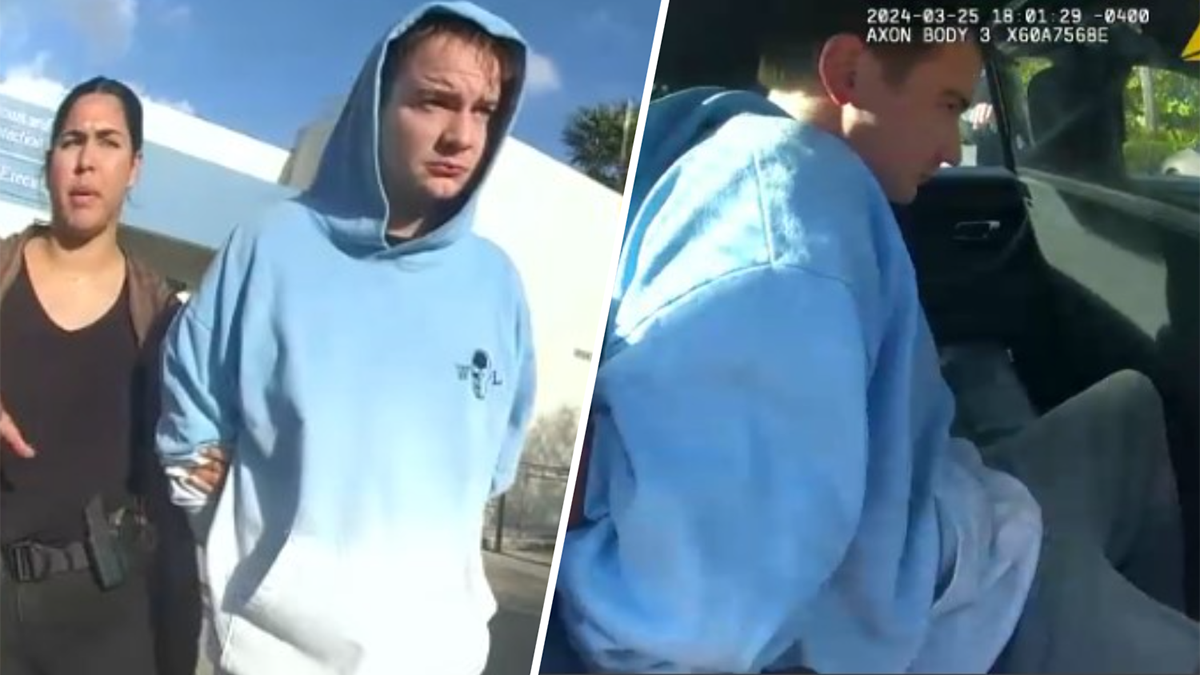Arlin Escobar was 16 and her brother was 9 when they escaped gang violence in El Salvador.
She remembers travelling by land to get to the US to reunite with their mother who was already living in South Florida.
She says their journey was difficult.
“We had to sleep near the river because there was no other place,” she recalled. “It was abandoned places where we had to stay.”
When they made it to Texas in 2014, they spent two weeks in a detention center she calls “the freezer” because of how cold it was.
“The conditions were bad,” Arlin said. “They would only give us aluminum to cover ourselves and it was freezing still. My brother, he got really bad. He wouldn’t eat, he would just be crying all day.”
In time, Arlin and her brother were reunited with their mother on the condition they would appear in court to face charges for entering the country illegally.
Local
“We were in front of the judge, we didn’t know what he was saying,” she said. “We didn’t have a lawyer so we had to go by ourselves.”
Arlin and her brother had no lawyer because they couldn’t afford one and in immigration cases, the government isn’t required to provide them one. Like traffic court, immigration proceedings are civil and no attorney is required. You can bring your own if you can afford it.
“I’ve seen many unaccompanied children in court,” said Elina Santana, an immigration attorney. “Unfortunately it’s just an everyday occurrence down here.”
She says she’s seen kids as young as five go before an immigration judge alone.
“They really have no idea what’s going on,” she said.
Between July 2014 and January 2017, the Department of Justice kept track of kids under the care of the Unaccompanied Children’s Program.
They reported 44,295 children in the program. 35 percent did not have attorneys representing them.
Another group that tracks immigration trends finds the percentage is higher when you take into account all of the unaccompanied children who have made it into the country.
According to data collected by Syracuse University’s Transactional Records Access Clearinghouse (TRAC) of the 285,874 children who have entered alone, 51 percent were unrepresented in immigration court.
The advocacy group, Kids in Need of Defense (KIND) says children without legal representation are five times more likely to be deported.
“There should be a public defender system for children,” said Kristie-Ann Padrón, an attorney with Catholic Charities, a nonprofit that took Arlin and her brother’s case for free. “They are not legally competent to sign a contract. How could they be expected to represent themselves in court?”
Padrón says, if deported, some of the children have nothing to go back to.
“Some were suffering from gang violence’” she said.
With the help of Catholic Charities, Arlin and her brother won their asylum case.
Three years have passed, he’s an honors student in high school. Arlin has learned English and works as a supervisor at a movie theatre while she gets her degree.
“I’m doing mechanical engineering and I want to work with the NASA,” Arlin said.
The NBC6 Investigators spent time in immigration court. We spoke with several kids who were facing a Miami judge alone without representation. They told us in Spanish that they fear being deported back.
Most immigration judges we saw in Miami tried to get unaccompanied minors help with non-profit attorneys but those organizations say there just isn’t enough free legal aid to meet the demand.
They say they are always looking for attorneys willing to donate their services.



